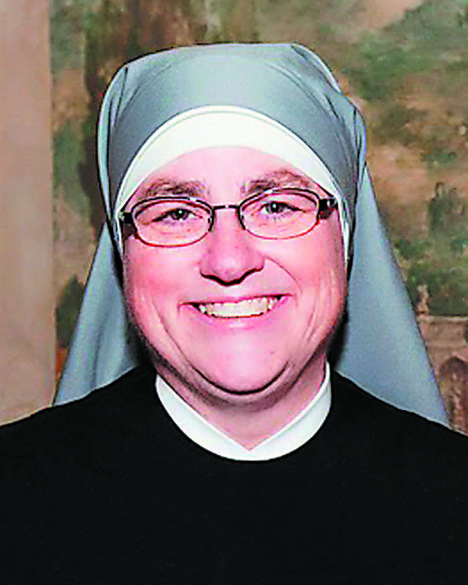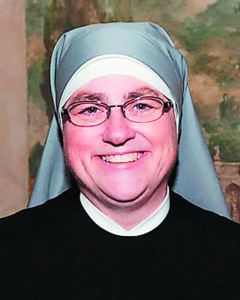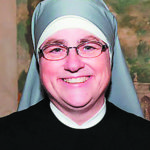
GUEST COLUMN
By Sister Constance Veit, l.s.p.
My fondest memories of summer are the times spent with my favorite aunt at her cottage nestled in the Adirondack Mountains. As a middle school teacher, she had a gift for relating to kids in a way very different from parents, like a wise friend or a trusted confidante. My aunt patiently taught us how to knit and sew; she listened to our stories and nurtured our dreams as if each niece or nephew were the only one.
She took us on long walks in the woods, pointing out her favorite wildflowers and teaching us to recognize fresh bear tracks and other potential dangers. She also taught us how to paddle her antique canoe around the nearby lake. As we got older, my aunt would sit on the dock reading a book as we took the canoe out to explore the lily pads along the shoreline or ride the waves created by the speeding motorboats. But she always kept one eye on us in case we got into trouble.
Although she never had children of her own, my aunt took a lively interest in all her nieces and nephews until the very end of her life. She never gave us lectures, expressed disapproval or told us how things should be done, but she always kept an eye on us. She remained creative and curious long after retiring and unassumingly shared her time, her talents and herself with others.
As I read Pope Francis’ recent post-synodal letter, Christus Vivit, in which he encourages the young and the old to form strong bonds, I realized what a blessing my aunt was to our family, for she personified the ideal of elders as wisdom figures and memory keepers.
“What do I ask of the elders among whom I count myself?” our Holy Father wrote. “I call us to be memory keepers … I envision elders as a permanent choir of a great spiritual sanctuary, where prayers of supplication and songs of praise support the larger community that works and struggles in the field of life. It is a beautiful thing when “young men and maidens together, old men and children, praise the name of the Lord” (Ps 148:12- 13).
When her life was coming to an end my aunt felt she had very little to leave us, but as my siblings and cousins came from all over the country to bid her farewell, it was obvious that because she had given us so much of herself, she would live on and even blossom in us.
“What can we elderly persons give to the young?” Pope Francis asked in Christus Vivit. “We can remind today’s young people, who have their own blend of heroic ambitions and insecurities, that a life without love is an arid life…. We can tell fearful young people that anxiety about the future can be overcome…. We can teach those young people, sometimes so focused on themselves, that there is more joy in giving than in receiving, and that love is not only shown in words, but also in actions.”
This is what my aunt taught us!
The following words of our Holy Father brought her memory to life in a special way:
“During the Synod, one of the young auditors from the Samoan Islands spoke of the Church as a canoe, in which the elderly help to keep on course by judging the position of the stars, while the young keep rowing, imagining what waits for them ahead.” He concluded, “Let us all climb aboard the same canoe and together seek a better world, with the constantly renewed momentum of the Holy Spirit.”
So, this summer, be intentional about bringing the generations in your family or neighborhood together. Take time for long walks and slow canoe rides, and for sharing memories and dreams. You won’t be disappointed!
(Sister Constance Veit is director of communications for the Little Sisters of the Poor.)




